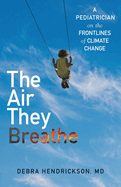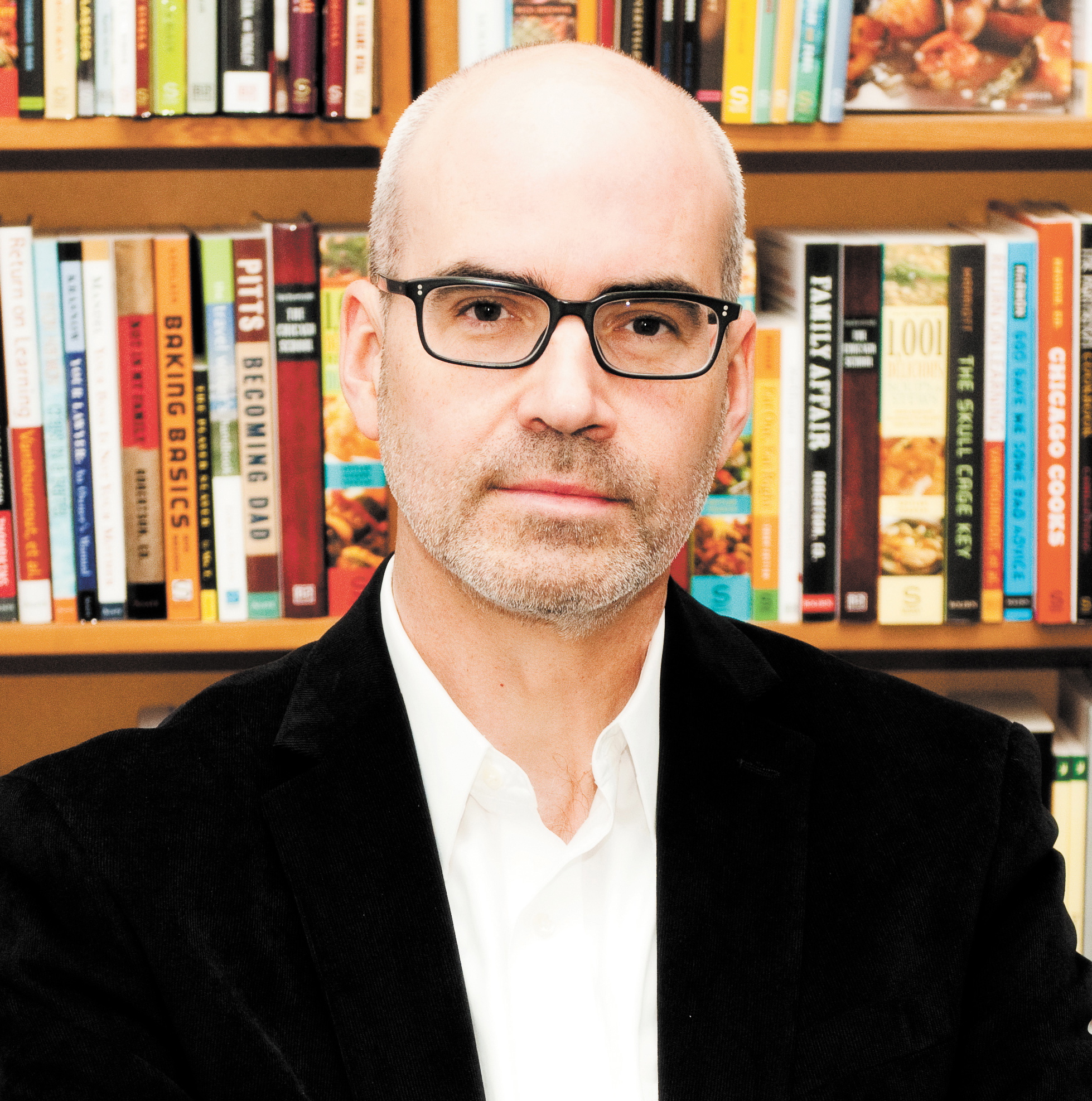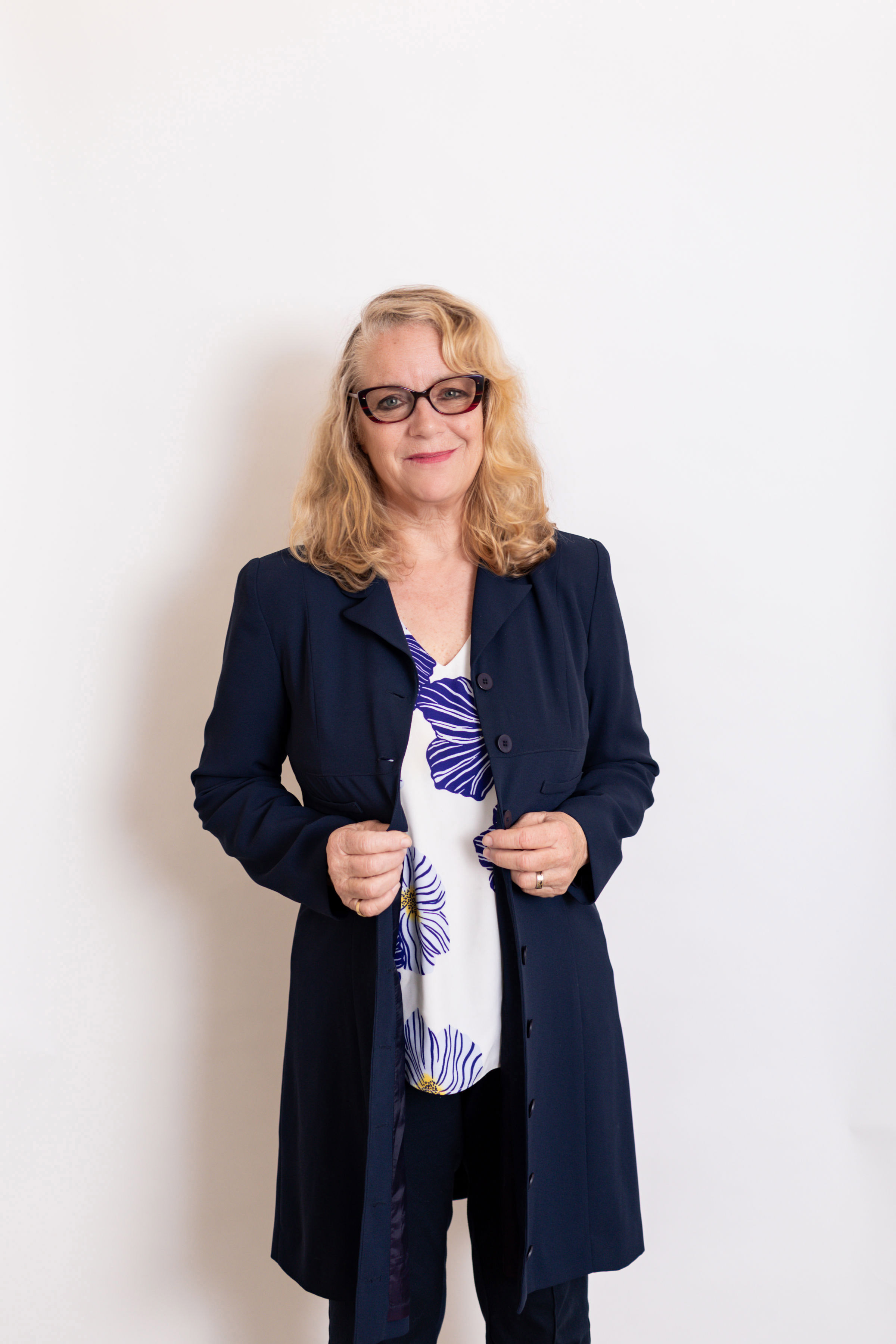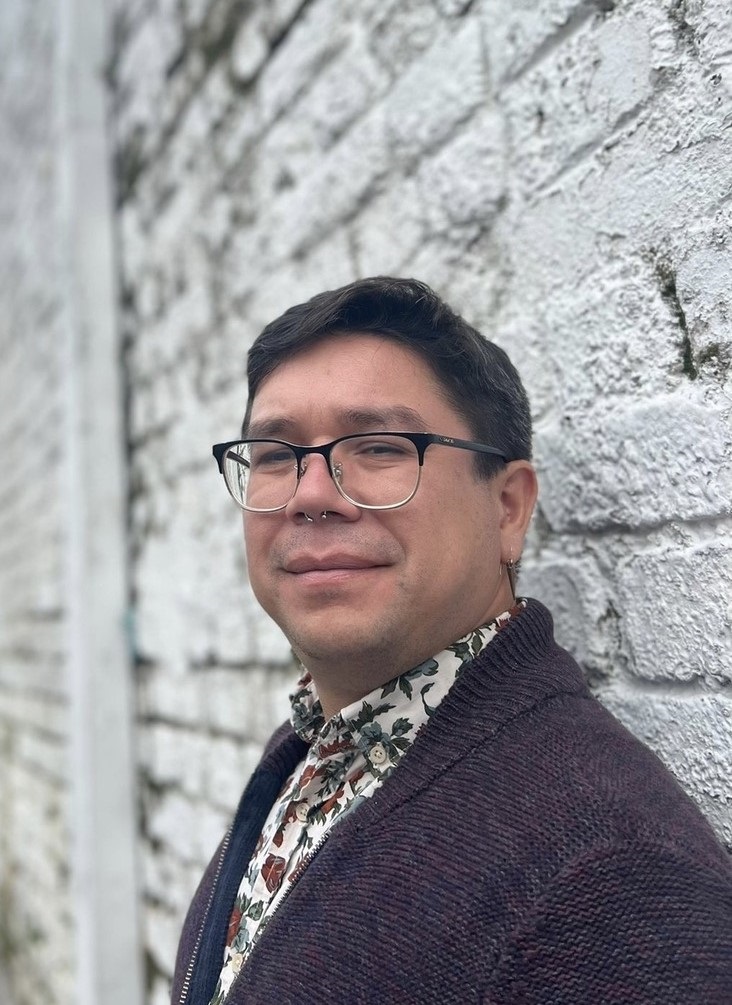 |
| photo: Aurora Santiago Ortiz |
Jorell Meléndez-Badillo is a historian of Puerto Rico, the Caribbean, and Latin America. His work focuses on the global circulation of radical ideas from the standpoint of working-class intellectual communities. Puerto Rico: A National History (Princeton University Press, April 2, 2024) is a panoramic history of Puerto Rico from pre-Columbian times to today. Princeton University Press has partnered with Planeta to co-publish a simultaneous Spanish-language edition, Puerto Rico: Historia de una nación.
Handsell readers your book in 25 words or less:
It is a vibrant history of how Puerto Ricans have created complex ideas of the nation in the face of more than five centuries of colonialism.
On your nightstand now:
At the top of a never-ending pile sits Roger Reeves's Dark Days: Fugitive Essays, Marta Aponte Alsina's Borinquen Field, Gary Goodman's The Last Bookseller, M.T. Vallarta's latest poetry collection, What You Refuse to Remember, and I'm saving some space for Golnar Nikpour's forthcoming book, The Incarcerated Modern: Prisons and Public Life in Iran.
Favorite book when you were a child:
I grew up with my grandparents in a house full of love but without many books. The only book I can recall seeing in my house was the Reina-Valera Bible. When I was coming of age, my grandparents bought a Cumbre encyclopedia, very popular in Latin America, in installments. I remember it vividly because I spent many hours looking at its glossy, full-colored pages.
Your top five authors:
José Luis González: The essay El país de los cuatro pisos marked a generation in Puerto Rico. When it was published, some of its ideas were controversial--and some still are. The essay also provided new ways of interpreting Puerto Rican history.
Emma Goldman: While people mostly know about Emma Goldman for her fiery oratory and radical pamphlets, her memoir Living My Life is an incredibly rich archive and narrative that brings together so many themes like migration, xenophobia, and gender discrimination at the turn of the 20th century.
Alexander Chee: I fell in love with Chee's work after reading How to Write an Autobiographical Novel. Now, every single time I see Chee's blurb in a book, I do not blink an eye and get the book.
Howard Zinn: A People's History of the United States was, without a doubt, deeply influential for me. When my now-teenage daughter was a child, I gave her my copy with a hand-written note of how important this book was for me. I hope that she gets to read it one day.
Luisa Capetillo: She's an early-20th-century self-taught, working-class intellectual, and while her writing is not what would be considered high literature, her modes of writing--against the current, for women's emancipation, and committed to transforming her reality--make her one of my biggest literary inspirations.
Book you've faked reading:
While I do not lie about this, I have never read the entirety of Miguel de Cervantes's Don Quixote, nor have I read the entirety of Homer's Odyssey or The Iliad.
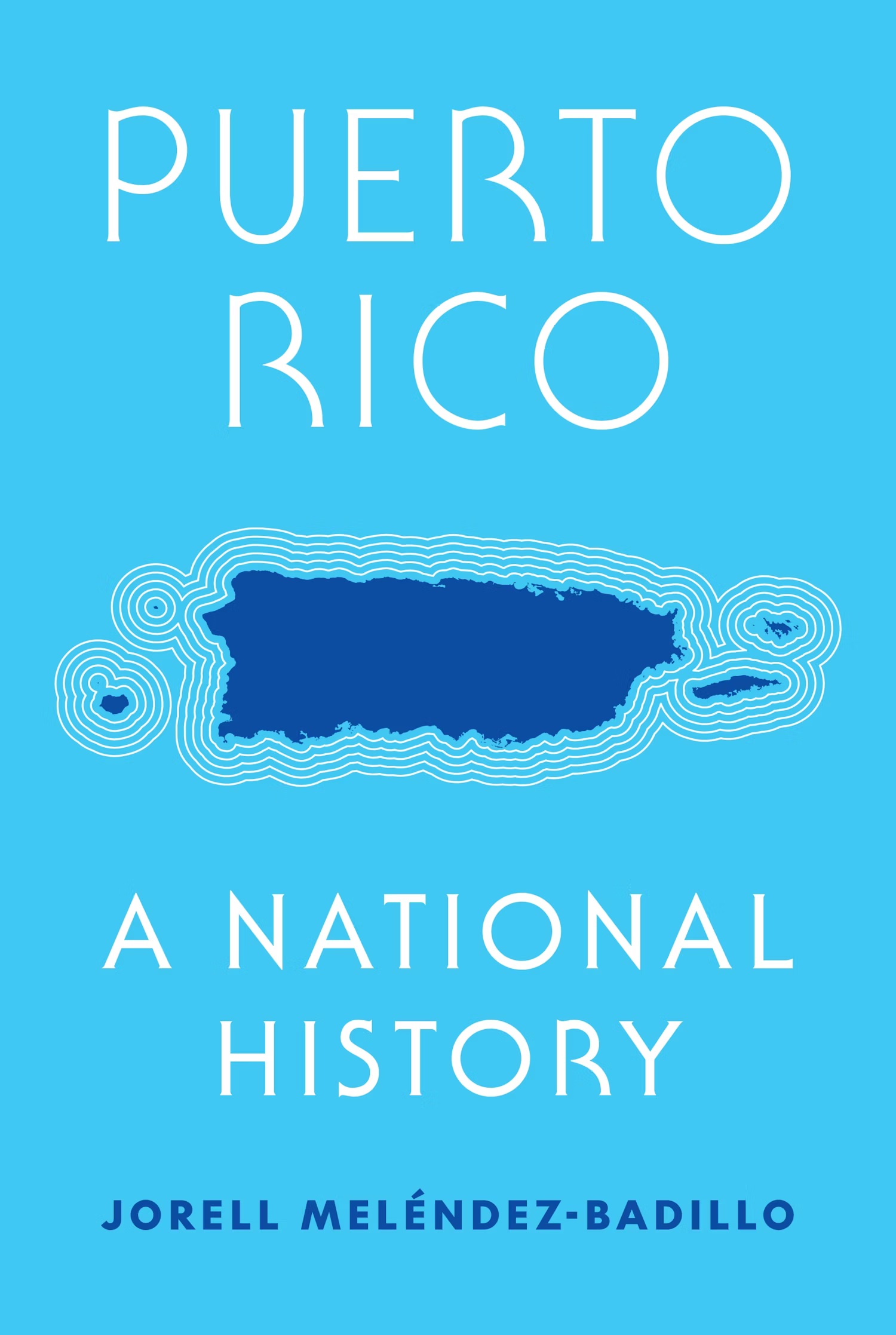 Book you're an evangelist for:
Book you're an evangelist for:
Saidiya Hartman's Wayward Lives, Beautiful Experiments. While Hartman is well known in academic circles for her earlier work, as it forced scholars to grapple with the intimacies and ethics of our writing about the past, Wayward Lives is her tour de force. Another book that I need to mention is Michel-Rolph Trouillot's Silencing the Past, published in 1995 and still one of the most important books to think about history in the recent past. Perhaps its beauty is that it was not written by a historian, but an anthropologist.
Book you've bought for the cover:
Grant Snider's I Will Judge You by Your Bookshelf. And to this day, it's one of my favorite comics. I am also a huge fan of books about books, reading, or libraries. So, if there's a book in the cover or the title, I am definitely adding it to my nightstand book pile.
Book you hid from your parents:
Because I grew up in a household where the only book you could find was the Bible, I became obsessed with the occult. My grandmother found--and threw away--books dealing with witchcraft. As a teenager, I also began reading literature about the need for Puerto Rico's independence. Since both of my grandparents believed that Puerto Rico should become part of the United States, they looked down upon this. And although my grandfather passed away, my grandmother still does not fully accept my political understandings of Puerto Rico.
Book that changed your life:
I remember to this day the moment I picked up Maximo Gorki's La Madre (The Mother) from the mall's Borders. I had taken a few Russian history classes in college, and the name must have struck a chord. It was, without a doubt, a life-altering reading. Much later I would find out that one of my top five authors, José Luis González, had the same experience. Another book that certainly changed my life was Octavia Butler's Kindred. I was not the same person when I finished the book.
Favorite line from a book:
"Los anarquistas creían.... Eran centauros: mitad razón, mitad impulso" (Anarchists believed.... They were centaurs: half reason, half impulse). --Cabezas de tormenta by the Uruguayan sociologist Christian Ferrer.
Five books you'll never part with:
There are many books that I've read and reread for teaching, research, or for pure pleasure. I also love that unexplainable and overpowering emotion of reading a book and then having a conversation with yourself through the notes you have left in the margins. Some of these books include La memoria rota by Arcadio Díaz Quiñones, Puerto Rico in the American Century by Rafael Bernabe and César Ayala, Antología del olvido by Eugenio Ballou, and Un país del porvenir: el afán de modernidad en Puerto Rico by Silvia Álvarez Curbelo. I recently read Joshua Bennett's Spoken Word: A Cultural History and loved it so much that I gave it away to a friend at a white elephant game. The next time I saw it on the shelves of my local bookstore I had to pick up, so I'll never part with it.
Book you most want to read again for the first time:
One time when I was an undergraduate student, I became obsessed with the Uruguayan sociologist Carlos Rama. In a haul of all his books from my university library, I mistakenly took out La ciudad letrada (The Lettered City) by his brother, the literary critic Ángel Rama. When I first read it, I did not fully understand it but it did something to my thinking. Years later, I came back to it and reread it, this time making connections and refining my understanding of Latin America writ large. While I am sure I'll go back to La ciudad letrada again, I might be perpetually looking for that fix.
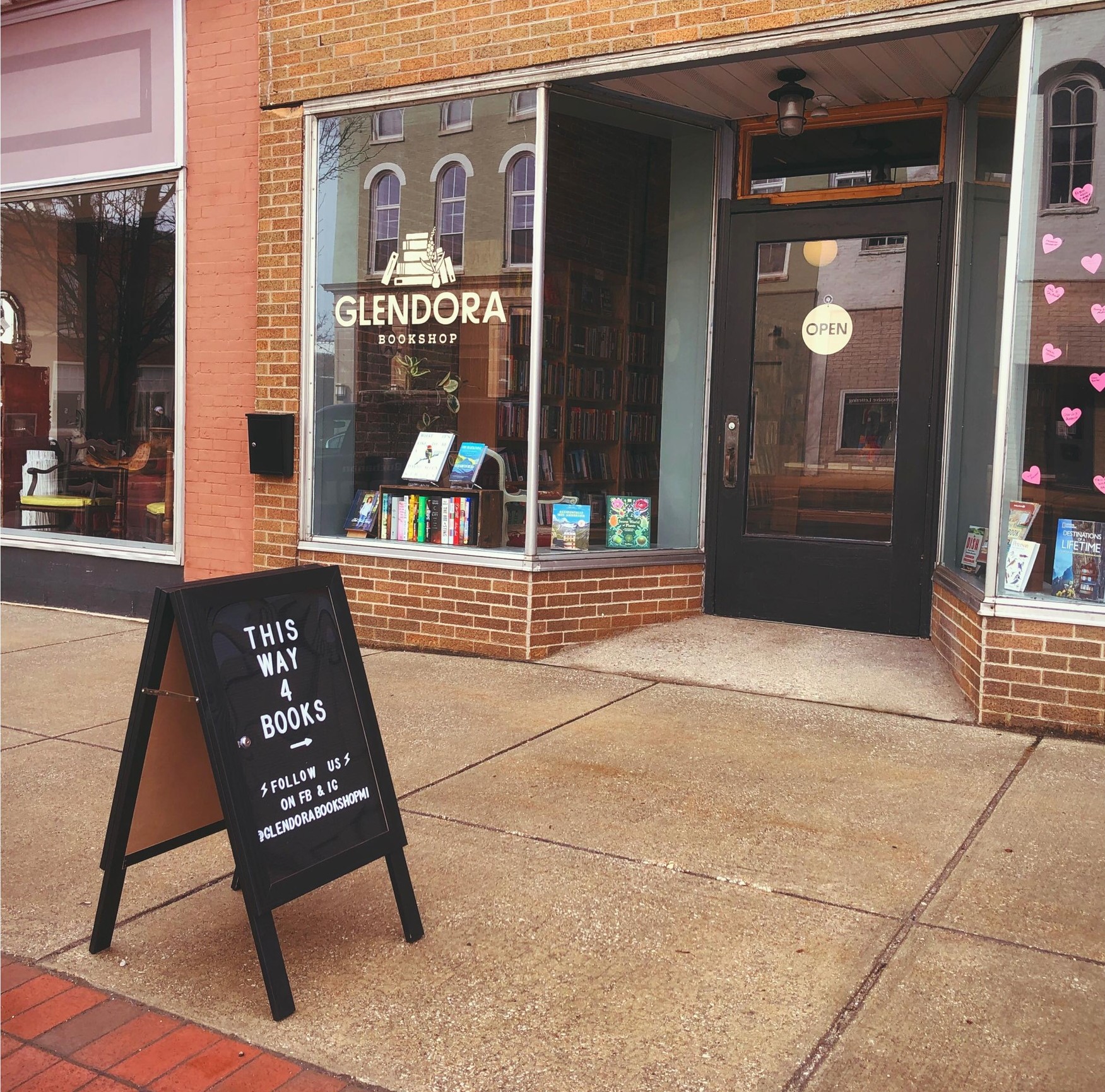 Glendora Bookshop will celebrate its official grand opening and ribbon cutting at 110 E. Front Street in Buchanan, Mich., on April 27, Independent Bookstore Day. Moody on the Market reported that the small, general-interest bookstore carries a variety of literary and genre fiction, nonfiction, along with books for children and young adults. Beginning in May, the shop will offer book groups, used book buy-backs for store credit, and a loyalty program for frequent shoppers.
Glendora Bookshop will celebrate its official grand opening and ribbon cutting at 110 E. Front Street in Buchanan, Mich., on April 27, Independent Bookstore Day. Moody on the Market reported that the small, general-interest bookstore carries a variety of literary and genre fiction, nonfiction, along with books for children and young adults. Beginning in May, the shop will offer book groups, used book buy-backs for store credit, and a loyalty program for frequent shoppers.










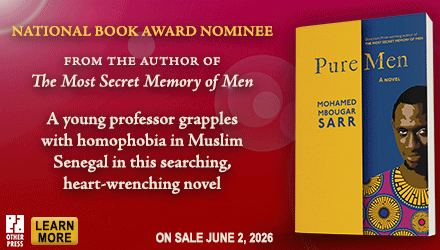
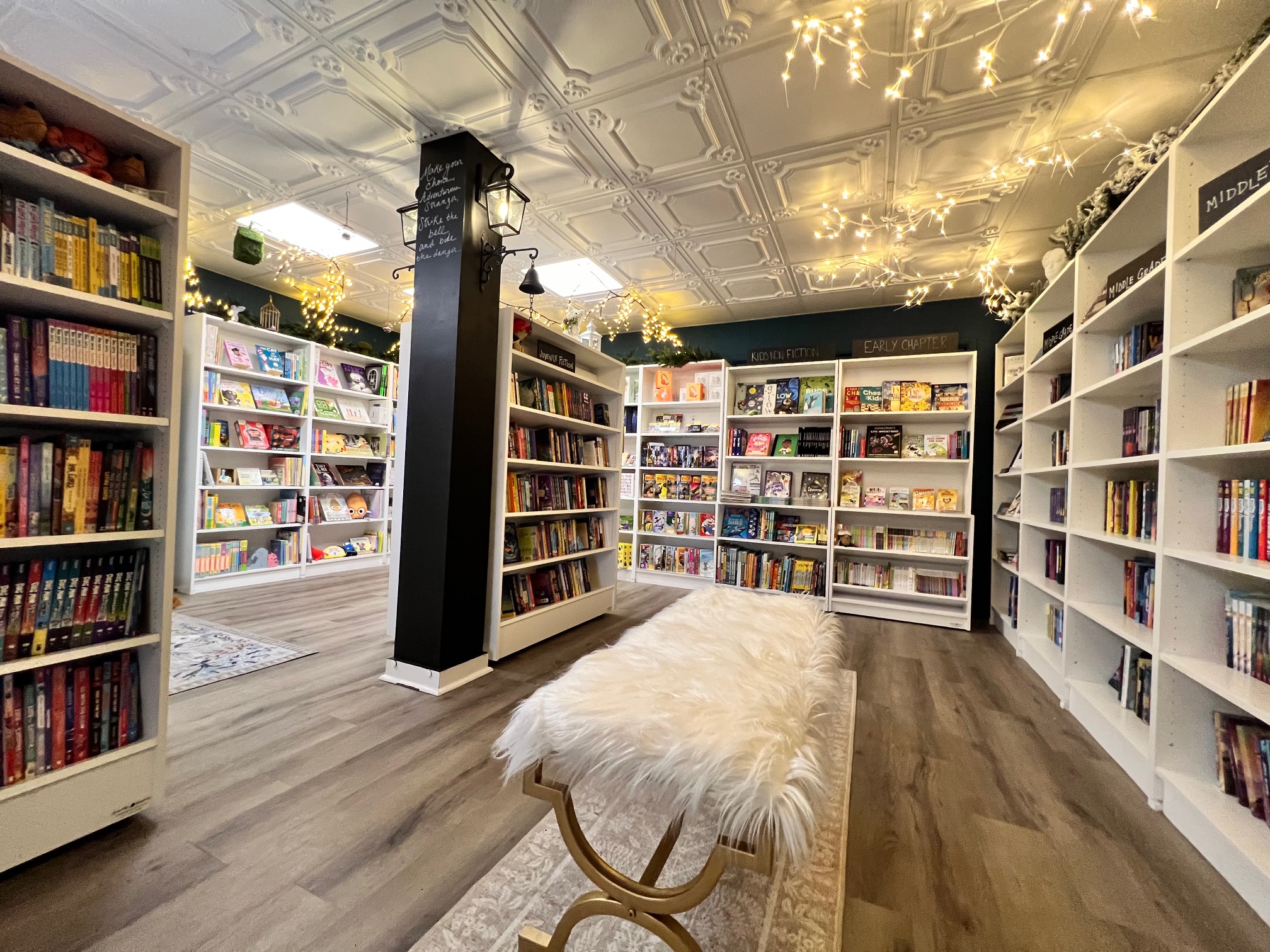 Upon entering the children's section through a wardrobe, guests find themselves embarking on a journey starting at the iconic lamp post from Narnia, surrounded by a winter-themed setting that gradually thaws into spring. This design aims to engage visitors by bringing the beloved classic to life, the bookstore noted.
Upon entering the children's section through a wardrobe, guests find themselves embarking on a journey starting at the iconic lamp post from Narnia, surrounded by a winter-themed setting that gradually thaws into spring. This design aims to engage visitors by bringing the beloved classic to life, the bookstore noted.
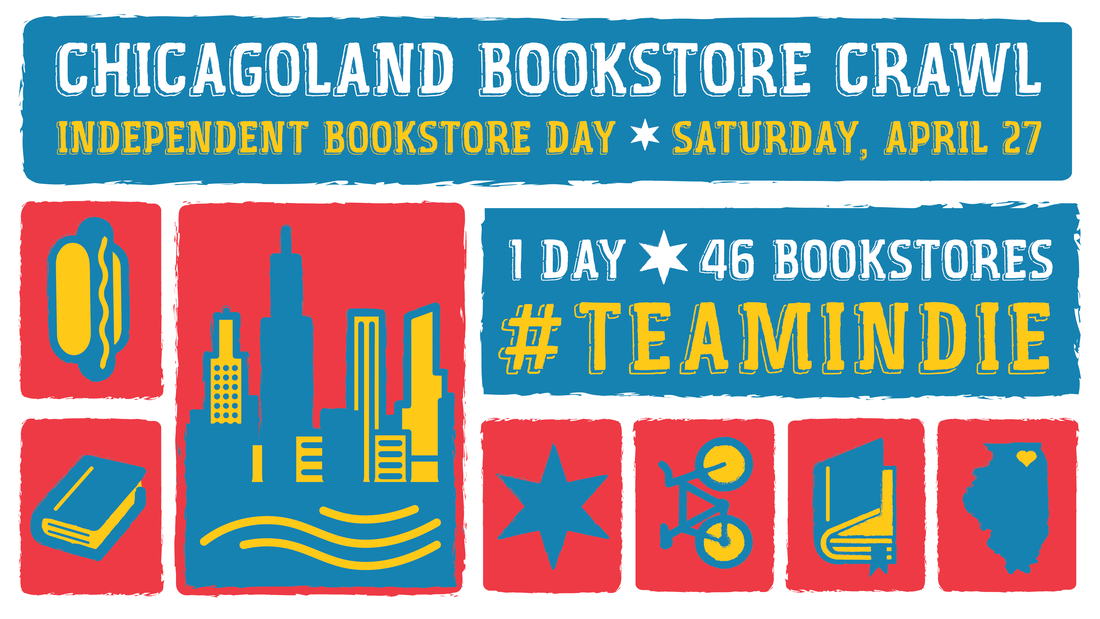 The
The 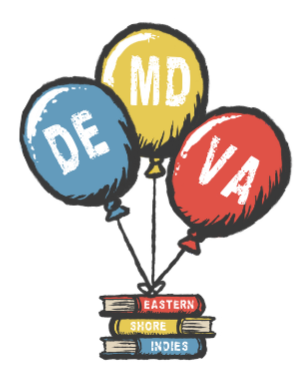 For the first time, bookstores on the Delmarva Peninsula are joining forces for the
For the first time, bookstores on the Delmarva Peninsula are joining forces for the 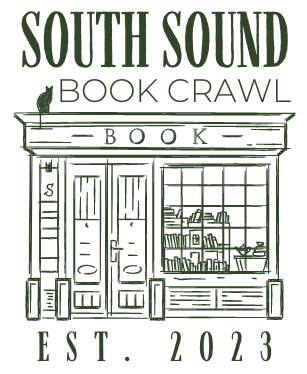 For the second year in a row, indies around Washington's South Puget Sound are working together on the
For the second year in a row, indies around Washington's South Puget Sound are working together on the 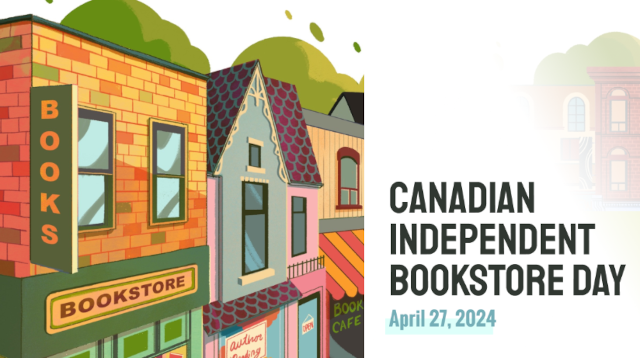
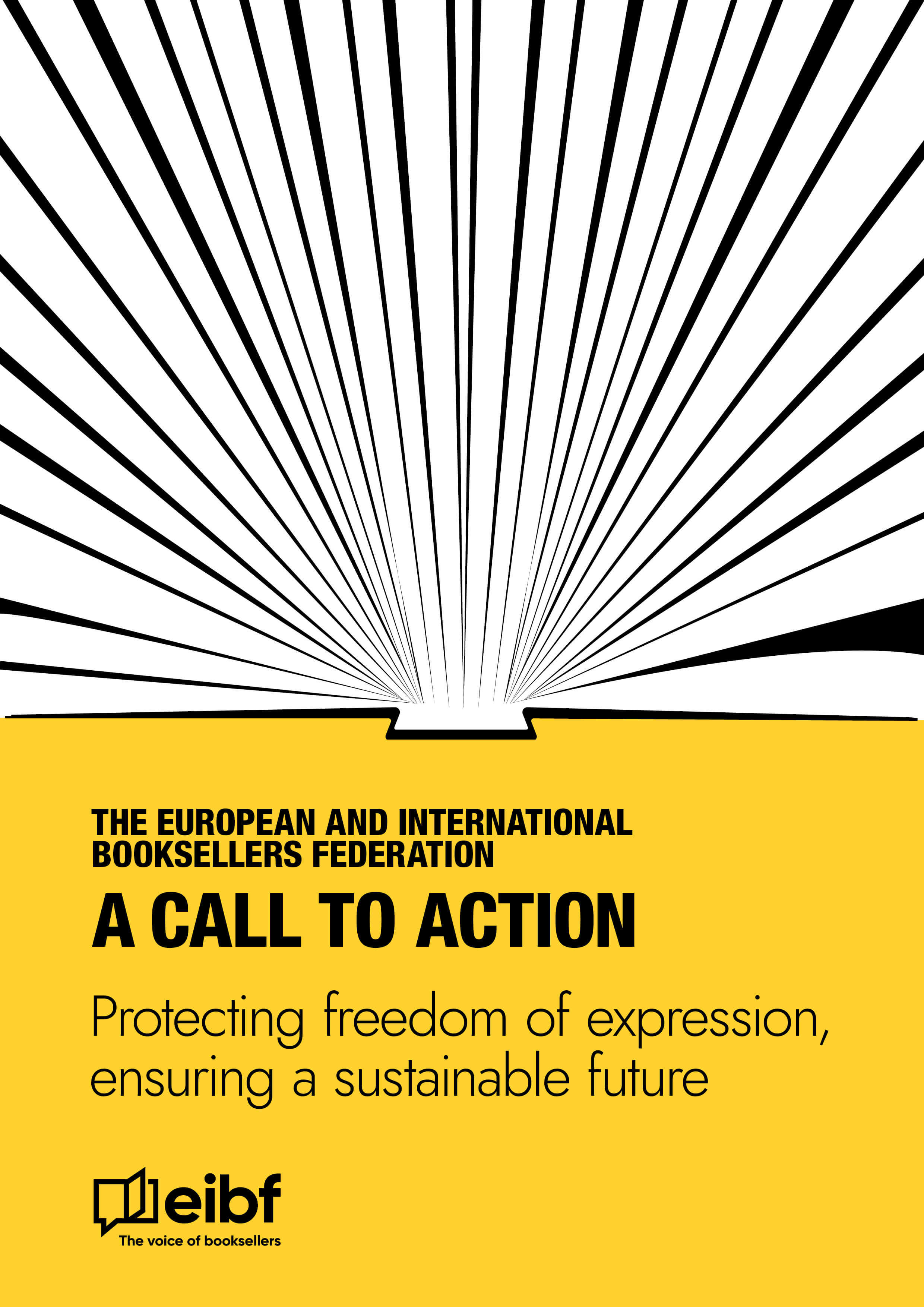 The
The 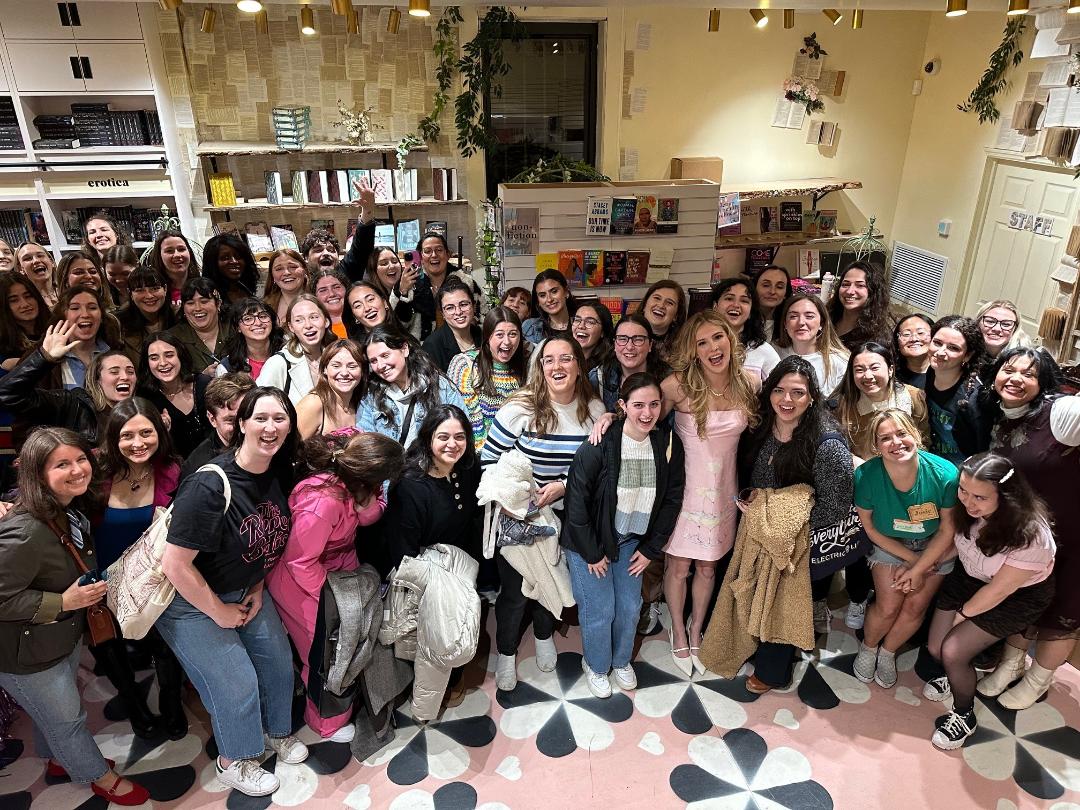 More than 50 bookstores across the country hosted midnight release parties on Tuesday night for Funny Story by Emily Henry (Berkley). The group of fans who went to the
More than 50 bookstores across the country hosted midnight release parties on Tuesday night for Funny Story by Emily Henry (Berkley). The group of fans who went to the 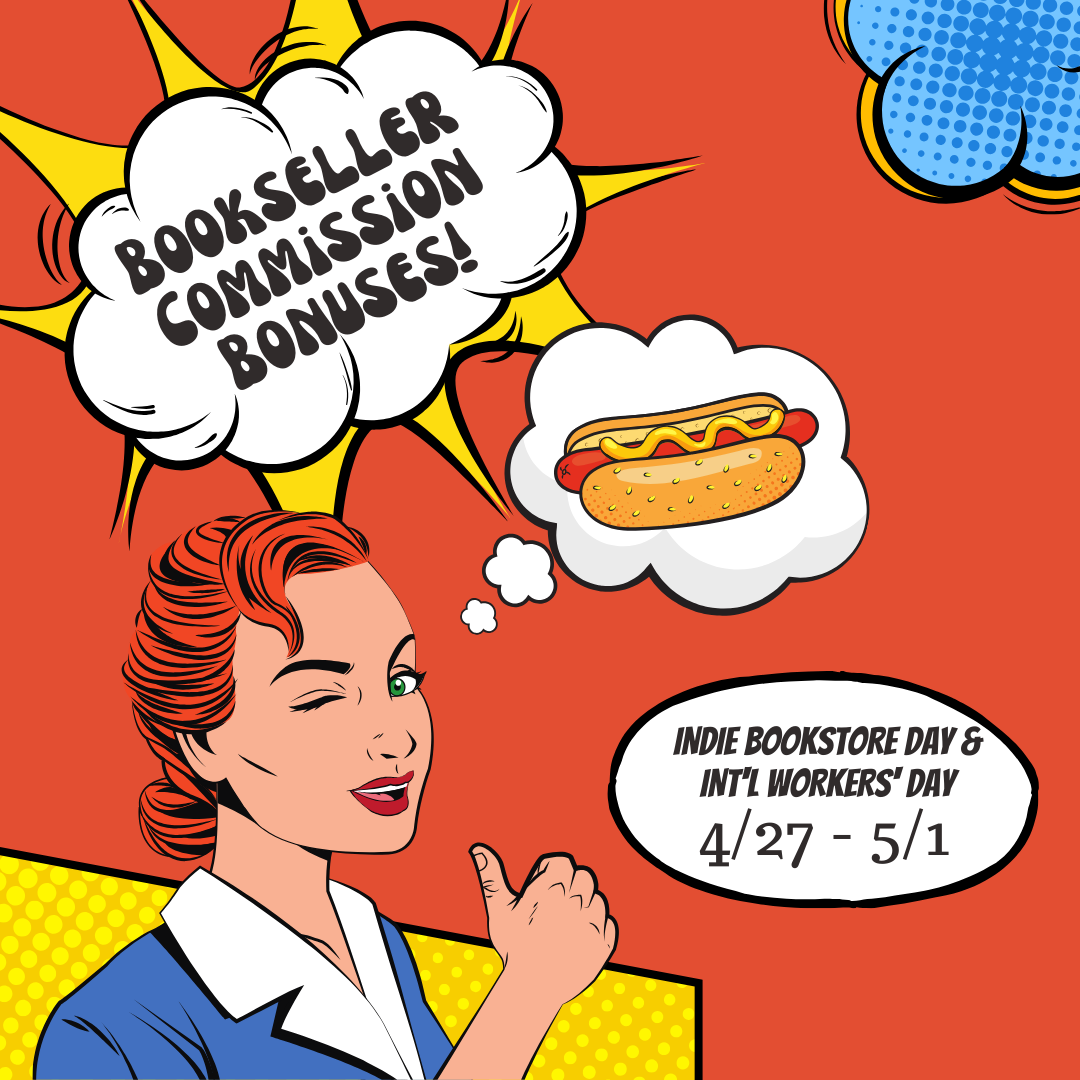 In the latest e-newsletter from
In the latest e-newsletter from 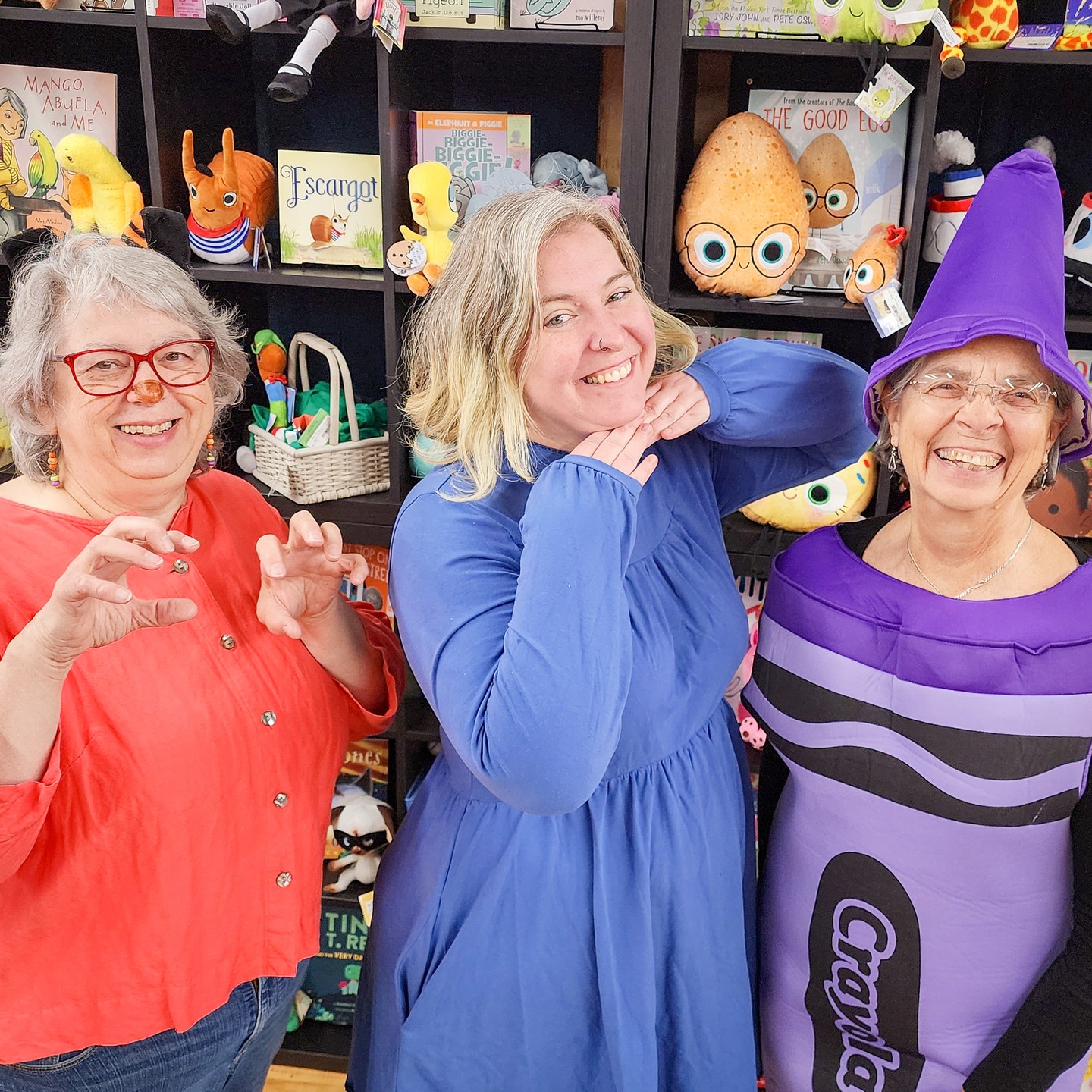 "
"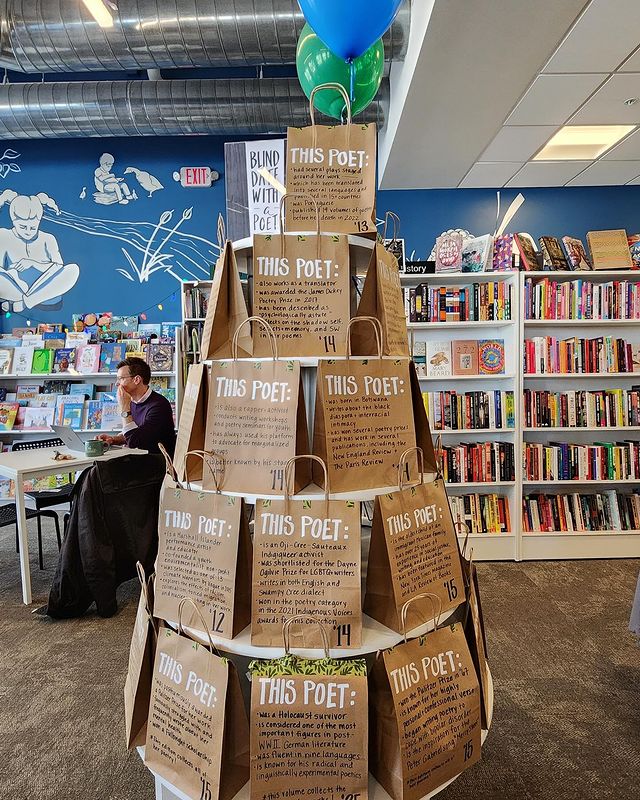
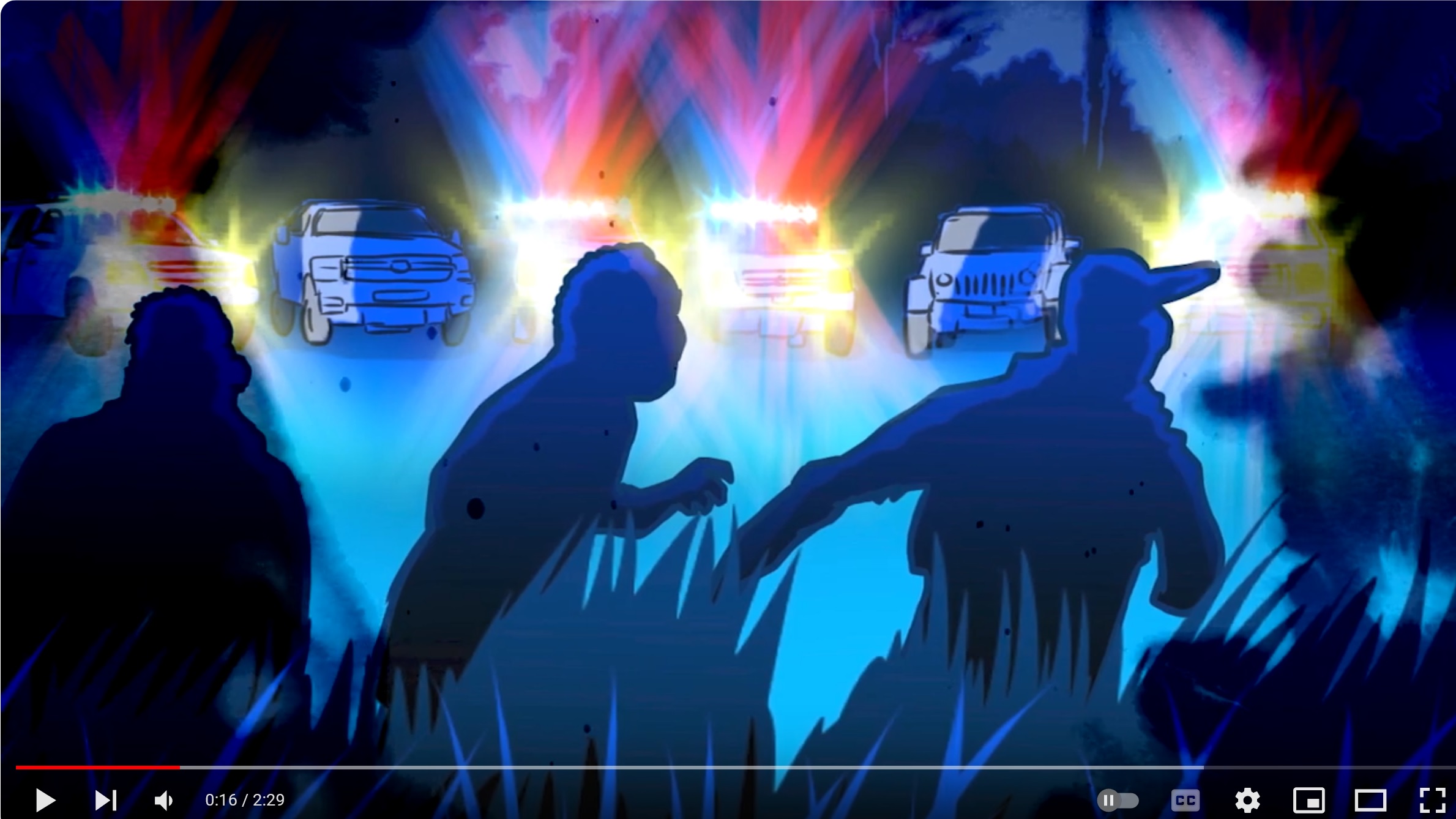 Through Fences
Through Fences
 Book you're an evangelist for:
Book you're an evangelist for: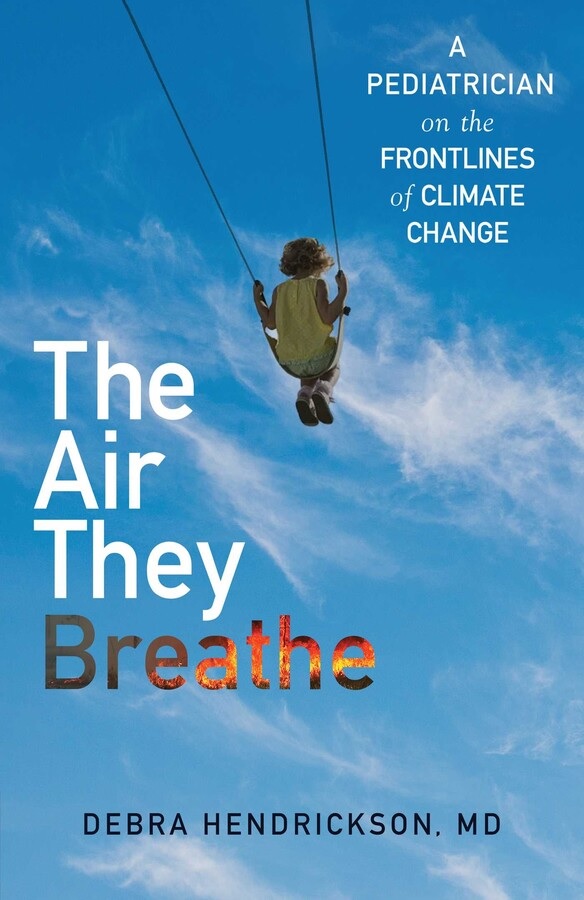 In The Air They Breathe, pediatrician Debra Hendrickson writes, "climate change has a face, and it is a child's." Hendrickson recounts stories of patients whose health has been harmed by the long-term effects of climate change. In a somewhat radical step, Hendrickson forcefully argues that rapidly ceasing the use of fossil fuels, transitioning to renewable energy, and rethinking norms of everyday life in terms of how people commute, how they eat, and even how they design technology is paramount to keeping children healthier. She tracks the impacts on infant, child, and adolescent health, looking at respiratory health and susceptibility to an increased range of diseases, as well as being prone to suffer more acutely from extreme weather. Other impacts include negative consequences to their mental health, such as climate anxiety and an inability to consider a thriving future, and post-traumatic stress disorder from surviving climate disasters such as severe storms, fires, and floods.
In The Air They Breathe, pediatrician Debra Hendrickson writes, "climate change has a face, and it is a child's." Hendrickson recounts stories of patients whose health has been harmed by the long-term effects of climate change. In a somewhat radical step, Hendrickson forcefully argues that rapidly ceasing the use of fossil fuels, transitioning to renewable energy, and rethinking norms of everyday life in terms of how people commute, how they eat, and even how they design technology is paramount to keeping children healthier. She tracks the impacts on infant, child, and adolescent health, looking at respiratory health and susceptibility to an increased range of diseases, as well as being prone to suffer more acutely from extreme weather. Other impacts include negative consequences to their mental health, such as climate anxiety and an inability to consider a thriving future, and post-traumatic stress disorder from surviving climate disasters such as severe storms, fires, and floods.